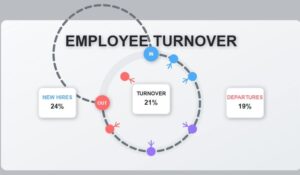Employee recognition plays a crucial role in fostering a positive work environment and motivating employees to perform at their best. One effective way to recognize and reward employees is through the use of monetary rewards. This article explores the various benefits of monetary rewards in the workplace and discusses their impact on motivation, performance, and overall employee satisfaction.

Understanding Monetary Rewards
Definition of Monetary Rewards
Monetary rewards, as the name suggests, are financial incentives provided to employees in recognition of their achievements or contributions to the organization. These rewards can take numerous forms, including bonuses, salary increases, commissions, profit-sharing, or stock options. By offering tangible monetary benefits, employers are able to directly acknowledge and appreciate their employees’ efforts.
Monetary rewards play a crucial role in motivating employees and driving their performance. When employees receive monetary rewards, it not only recognizes their hard work but also reinforces positive behavior and encourages them to continue excelling in their roles. These rewards serve as a powerful tool for organizations to attract, retain, and engage top talent in a highly competitive job market.
Furthermore, monetary rewards provide employees with a sense of financial security and stability. They offer a tangible and measurable return on investment for their dedication and commitment to the organization. This financial stability can have a positive impact on employees’ overall well-being, reducing stress and allowing them to focus more on their work and personal growth.
Different Types of Monetary Rewards
Monetary rewards can be categorized into different types based on their purpose and structure. The most common forms include performance-based bonuses, annual salary increases, and profit-sharing programs.
Performance-Based Bonuses
- Given when employees meet specific goals or targets.
- Can be awarded monthly, quarterly, or annually.
- Tied to individual, team, or company-wide goals.
- Serves as an incentive to exceed performance expectations.
- Motivates employees to collaborate and work towards common objectives.
- Promotes a culture of improvement and excellence.
Annual Salary Increases
- Given once a year, based on overall performance and potential.
- Typically linked to performance reviews.
- Varies based on factors like job performance, market conditions, and company finances.
- Recognizes past achievements and invests in future growth.
- Provides a sense of progression and encourages skill development.
Profit-sharing programs
- Distributes a portion of the company’s profits among employees.
- Aligns employees’ interests with the company’s financial success.
- Can include cash bonuses, stock options, or retirement contributions.
- Creates a sense of ownership and accountability.
- Motivates employees to contribute to the company’s profitability.
- Fosters a collaborative and results-driven culture.
Other Financial Incentives
- May include commissions, performance-based stock options, or recognition programs.
- Provides additional opportunities for employees to be recognized and rewarded.
- Ensures continued employee engagement and commitment to the organization’s success.
The Psychological Impact of Monetary Rewards
Motivation and Productivity
Monetary Rewards as Motivators
- Tap into employees’ intrinsic desire for financial security and personal fulfillment.
- Provide a tangible and measurable acknowledgment of achievements.
- Encourage employees to stay engaged and perform at their best.
- Foster a sense of accomplishment and drive continuous improvement.
Behavioral Impact Through Operant Conditioning
- Reinforce behaviors by associating efforts with positive outcomes.
- Utilize financial incentives to encourage employees to repeat desired behaviors.
- Strengthen motivation by linking hard work to tangible rewards.
Psychological Effects on Self-Esteem and Self-Efficacy
- Recognition and financial compensation enhance self-confidence.
- Boost belief in abilities, leading to increased motivation.
- Empower employees to take on challenging tasks and perform at higher levels.
Employee Satisfaction and Retention
Recognizing employees’ efforts with monetary rewards can greatly impact their overall workplace experience.
- Recognizing employees with monetary rewards enhances job satisfaction and workplace happiness.
- Employees feel valued and appreciated for their hard work, building a positive emotional connection with the organization.
- This recognition fosters loyalty and increases employee retention.
- When employees anticipate recognition for their efforts, they stay committed to the company’s goals and objectives in the long term.
Equity theory provides a psychological perspective on how monetary rewards enhance job satisfaction.
- The psychological concept of equity theory explains the impact of monetary rewards on satisfaction.
- According to this theory, individuals seek fairness in social exchanges.
- When employees receive rewards matching their efforts, they perceive the system as fair and equitable.
- This perception of fairness improves job satisfaction and strengthens organizational commitment.
Monetary rewards can uplift team morale and encourage collaboration within the workplace.
- Monetary rewards positively influence employee morale and team dynamics.
- Rewarding individual achievements fosters healthy competition among employees.
- This encourages others to strive for excellence.
- The resulting positive work environment promotes collaboration, motivation, and higher productivity.
Strategically using monetary rewards benefits both employees and organizational growth.
- Monetary rewards significantly impact motivation, productivity, satisfaction, and retention.
- By addressing the intrinsic desire for financial security and fulfillment, these rewards act as strong motivators.
- Recognizing employees’ contributions builds a positive emotional bond with the organization, boosting job satisfaction and loyalty.
- Strategically using monetary rewards contributes to organizational success and growth.
Monetary Rewards and Performance
Monetary rewards have a direct and significant impact on individual performance within an organization. These rewards serve as powerful motivators, incentivizing employees to excel in their respective roles and go above and beyond expectations. When financial benefits are tied to measurable performance metrics, employees are not only motivated to meet targets but are also driven to consistently exceed them, striving for outstanding results.
The prospect of earning monetary rewards fosters a competitive spirit among employees. This healthy competition encourages individuals to take ownership of their work and push themselves to perform at their best. With the promise of financial incentives, employees are more likely to invest their time and energy into their tasks, resulting in increased productivity and a higher quality of output.
Influence on Team Performance
Monetary rewards not only motivate individuals but also have a significant influence on team performance. When teams are recognized and rewarded for their collective achievements, it strengthens their bond and fosters a sense of camaraderie. Monetary incentives promote a collaborative environment where team members work together towards shared goals, leveraging their individual strengths to achieve success.
By offering monetary rewards for team accomplishments, organizations create a culture of collaboration and cooperation. Team members are inspired to support and challenge each other, as they strive to earn recognition and reap the financial benefits. This healthy competition within the team not only drives individual performance but also encourages team members to collectively raise the bar, pushing the boundaries of what they can achieve together.
Moreover, monetary rewards for team performance help create a positive and results-oriented team culture. When individuals see the direct correlation between their efforts and financial benefits, they become more engaged and committed to the team’s success. This shared sense of purpose and motivation fosters a supportive and productive work environment, where team members are willing to go the extra mile to achieve outstanding results.
In conclusion, monetary rewards have a profound impact on both individual and team performance within an organization. By incentivizing employees to excel in their roles and promoting collaboration among team members, these rewards play a crucial role in driving productivity, quality, and overall success. Organizations that recognize and leverage the power of monetary incentives are more likely to cultivate a high-performing workforce and achieve their strategic objectives.
Implementing a Monetary Reward System
Implementing a monetary reward system requires careful planning and consideration. It is essential to clearly define the criteria for earning rewards and ensure that they are aligned with the organization’s objectives and values. By doing so, employees will have a clear understanding of what is expected of them and what they need to do in order to be eligible for rewards.
Transparency in the reward system is also crucial. When employees can see how the system works and understand the rationale behind it, it helps build trust and fairness among them. Regular communication and updates on performance metrics and reward eligibility criteria are therefore important. This way, employees are kept informed and motivated to work towards achieving the desired outcomes.
However, implementing a monetary reward system may present some challenges. One challenge is ensuring that the reward criteria are not too vague or subjective. If employees perceive the criteria as unfair or arbitrary, it can create a sense of demotivation and resentment. To address this, organizations should establish clear and objective evaluation criteria. By providing employees with specific guidelines and expectations, they can have a better understanding of what they need to do to earn rewards.
Another challenge is the need to provide employees with the necessary guidance and support to achieve their goals. Simply setting criteria and expecting employees to meet them may not be sufficient. Organizations should invest in training and development programs to help employees improve their skills and capabilities. By providing the necessary resources and support, employees can feel empowered to perform at their best and increase their chances of earning rewards.
Moreover, it is important to periodically review and revise the reward system to ensure its effectiveness and relevance. As the organization evolves and its objectives change, the reward system should be adjusted accordingly. By regularly evaluating the system and making necessary updates, organizations can ensure that it continues to motivate and incentivize employees in a meaningful way.
The Long-Term Effects of Monetary Rewards
Employee Loyalty and Company Culture
Monetary rewards contribute to building a strong company culture and fostering employee loyalty. When employees receive financial recognition for their efforts, they develop a deep sense of belonging and attachment to the organization. This promotes a positive work environment where employees feel valued and motivated to contribute their best, ultimately leading to higher levels of productivity and innovation.
Furthermore, monetary rewards can have a ripple effect on employee loyalty and company culture. When employees see their colleagues being rewarded for their hard work, it creates a sense of healthy competition and inspiration. They strive to achieve similar recognition, which drives them to perform at their best and contribute to the overall success of the organization.
Additionally, monetary rewards can be used strategically to reinforce desired behaviors and values within the company culture. For example, organizations can offer bonuses or incentives to employees who consistently demonstrate teamwork, innovation, or exceptional customer service. This not only encourages employees to embody these values but also reinforces them as integral components of the company’s identity.
Financial Sustainability and Business Growth
While monetary rewards are an investment for organizations, they can have significant long-term benefits in terms of financial sustainability and business growth. Motivated and engaged employees are more likely to go the extra mile, providing superior customer service and driving revenue growth.
Moreover, monetary rewards can attract top talent and help retain skilled employees, reducing hiring and training costs in the long run. When potential candidates see that a company values and rewards its employees, they are more likely to be attracted to the organization and consider it as a desirable place to work.
Furthermore, monetary rewards can serve as a powerful tool for employee retention. In a competitive job market, skilled employees are often sought after by other companies. By offering attractive monetary rewards, organizations can create a sense of loyalty and commitment among their employees, reducing the likelihood of them seeking opportunities elsewhere.
Additionally, monetary rewards can have indirect financial benefits by improving employee morale and reducing turnover rates. When employees feel recognized and rewarded for their contributions, they are more likely to be satisfied with their jobs and less likely to seek employment elsewhere. This reduces the costs associated with recruiting, hiring, and training new employees, ultimately contributing to the financial sustainability of the organization.
In conclusion, monetary rewards have far-reaching effects beyond immediate financial recognition. They contribute to building a positive company culture, fostering employee loyalty, and driving long-term business growth. By strategically implementing monetary rewards, organizations can create a motivated and engaged workforce that is committed to achieving excellence and contributing to the overall success of the organization.
Alternatives to Monetary Rewards
When it comes to employee recognition, monetary rewards are often the go-to option. However, it is important for organizations to consider non-monetary alternatives as well. Rewards that are not monetary can be just as impactful, if not more, in motivating and engaging employees.
Non-Monetary Rewards and Incentives
Non-monetary rewards can take many forms and can be tailored to meet the individual needs and preferences of employees. One popular non-monetary reward is public recognition. Acknowledging an employee’s hard work and achievements in front of their peers can boost morale and create a sense of pride. Another non-monetary reward is flexible work arrangements. Allowing employees to have control over their work schedule can improve work-life balance and increase job satisfaction.
Professional development opportunities are also highly valued by employees. Providing them with opportunities to learn and grow can not only enhance their skills and knowledge but also demonstrate the organization’s commitment to their personal and professional growth. Additionally, offering additional time off as a reward can be a great way to show appreciation for an employee’s dedication and hard work.
By diversifying the recognition program and incorporating non-monetary rewards, organizations can create a well-rounded and inclusive recognition culture. This approach ensures that employees with different preferences and motivations are recognized and appreciated in a way that resonates with them.
Balancing Monetary and Non-Monetary Rewards
While monetary rewards have their benefits, it is essential to strike a balance between monetary and non-monetary rewards in an effective recognition program. Monetary rewards provide employees with tangible benefits, such as extra income or bonuses, which can be a powerful motivator. However, non-monetary rewards focus on building a positive work environment and reinforcing a culture of appreciation.
By combining both approaches, organizations can create a comprehensive recognition strategy that addresses the diverse needs and motivations of their workforce. This balanced approach ensures that employees feel valued and appreciated, both financially and emotionally. It also helps foster a sense of belonging and loyalty, as employees recognize that their organization cares about their overall well-being.
In conclusion, while monetary rewards have numerous benefits in the workplace, it is crucial for organizations to consider non-monetary alternatives as well. By implementing a well-designed reward system that incorporates both monetary and non-monetary rewards, organizations can create a thriving and motivated workforce. Leveraging employee recognition and communication platforms can further enhance the implementation process and maximize the impact of these rewards.













